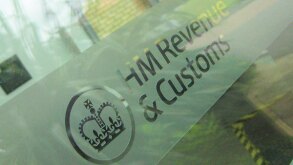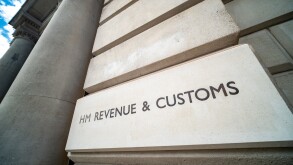A ruling delivered on February 1 2022, by the County Administrative Court of Gothenburg may have implications for multinational enterprise groups with Swedish entities paying licence fees to foreign group companies owning intangible property.
The case concerned the deductibility of a licence fee paid by a Swedish company (‘AB’) to the trademark owner, a Maltese group company (‘Corp’). It was uncontested that Corp was the legal owner of the trademark. According to the Swedish Tax Agency (STA), however, Corp was not due any licence fees for the trademark as it did not perform any development, enhancement, maintenance, protection, or exploitation (DEMPE) functions.
In the STA’s view, it was therefore not arm’s-length practice for AB to pay for the use of the trademark. In addition, the ruling concerned whether the initial payment for the sale of the business concept by AB to Corp could be offset as a compensating adjustment against the licence fees paid.
The business concept had been developed by AB on assignment by Corp, which compensated AB for the value generated based on an uncontested valuation. The business concept was subsequently used as a basis for Corp’s trademark registration. Corp thus became the legal owner of the trademark. As AB would use the trademark in its local business activities, a licence arrangement was introduced.
The Administrative Court based its ruling on the OECD Transfer Pricing Guidelines for Multinational Enterprises and Tax Administrations (the ‘TP Guidelines’), specifically sections 6.32, 6.40-42, and 6.47-48. As Corp, the owner and licensor of the trademark, did not perform any DEMPE functions, the court considered that an unrelated party would not pay a licence fee and therefore adjusted the licence fee paid by AB. In light of this, KPMG’s analysis of the ruling is limited to its application of the TP Guidelines.
The challenges of attributing intangible-related profits
The case demonstrates the challenges prevalent in attributing intangible-related profits in the post-BEPS era. The County Administrative Court clearly acknowledged that legal ownership can be separated from rights ultimately to retain the full economic returns from intangibles. However, in the authors’ view, this was true before BEPS was introduced.
In a third-party situation, the owner of an intangible has been obliged to share (in some form) the revenue from the exploitation of an intangible with any external party that has contributed to its success in the market (consider the music artist and the record company, or an author and the publishing company). The case at hand, however, goes one step further and arguably mistakes legal ownership as being irrelevant for the right to receive the initial economic returns from intangibles.
The court stated that the type of compensation due to the owner of a trademark will depend on the DEMPE functions it performs. The TP Guidelines state that the owner of a trademark will be due income accrued as a result of possessing the ownership of the trademark. The most common example of such revenue streams for the use of trademarks are licence fees, which are most frequently priced as a percentage of the turnover generated.
If another group company contributed to the DEMPE functions of the trademark, it will merit compensation from the owner of the trademark. The arm's-length compensation for licensed use of the trademark is therefore, in the authors’ view, the subject of one transaction. The compensation for a DEMPE function performed by a party other than the legal owner is the subject of another subsequent transaction.
By eliminating the licence fee due to the owner of the trademark with reference to the lack of DEMPE functions, the behaviour of independent parties under similar circumstances is ignored. Applying the TP Guidelines to reach a conclusion that the legal owner should have no compensation arguably contradicts the arm’s-length principle.
In addition, the court did not seek to identify the DEMPE functions performed by other members of the group. Instead, it seemed satisfied in concluding that the trademark owner did not perform any DEMPE functions. Had the court sought to ascertain whether AB performed DEMPE functions, it would have been able to identify whether the performance of such functions merited compensation from Corp and priced such compensation with help from the TP Guidelines.
The STA’s rejection of the deductibility of the licence fees led to an additional claim made by the company that related to offsetting the payment for the sale of the business concept invoiced from AB to Corp against the licence fees paid. The court determined that a compensating adjustment was not reasonable as the initial sale was priced appropriately and future licence fees were not directly contingent on future licence fees from its subsidiaries.
The court’s reasoning is, in the authors’ view, quite strict as it should be evident that a sale of IP should be closely linked to any future licence payments for the use of the same IP.
The case has been appealed to the Administrative Court of Appeal.
Implications for MNEs
The STA and the court’s view, even though it is not considered precedent, implies a risk that deductions for licence fees paid by Swedish entities of MNE groups to foreign group companies owning IP will not be allowed when calculating the taxable result of the Swedish entity unless the taxpayer, putting aside legal ownership, can substantiate the proper economic substance and DEMPE functions of the recipient.
It is the authors’ view that the TP Guidelines do not support that licence fees can be rejected altogether on the basis of limited economic substance of the legal owner. However, this should not be confused with the possibility of questioning and assessing the potential arm’s-length price of intercompany transactions involving intangibles. KPMG is therefore hopeful that any future court rulings concerning cases of a similar nature consider the guidance available in evaluating the arm’s-length nature of similar transactions.
Nevertheless, MNE groups should be prepared to defend their position if audited in a similar fashion in relation to payments and the pricing of such payments. This could be done by providing a detailed value chain analysis detailing the group-wide performance of DEMPE functions.












